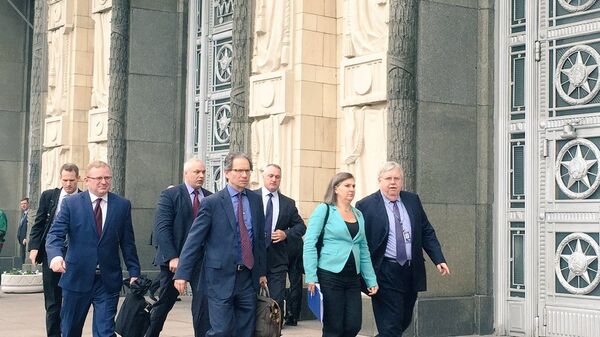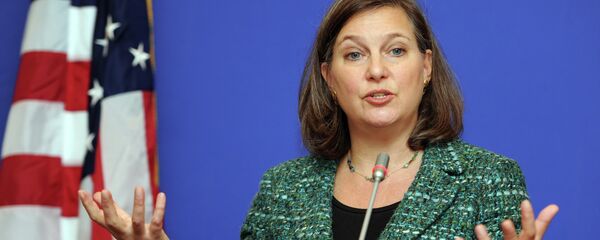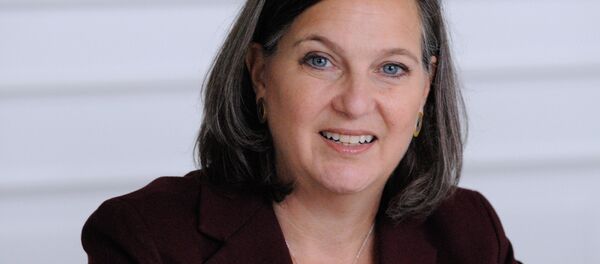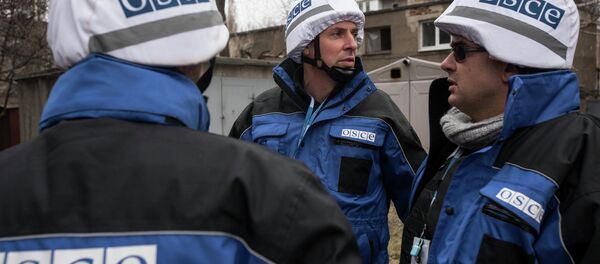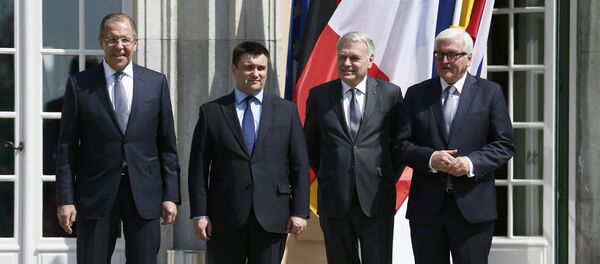In his own commentary on the visit, Expert Magazine columnist Gevorg Mirzayan clarified, saying that Nuland's main official goal "is to spur the negotiating process on the Donbass and, in particular, on the holding of local elections in the Donetsk and Lugansk People's Republics, one of the most important measures of the Minsk peace agreements."
"At first glance, of course, it seems like Nuland came to the wrong city," the analyst noted. "After all, it's not Moscow that's sabotaging the holding of elections in the Donbass, but Kiev. One of the key challenges for Ukrainian authorities is not to recognize the situation in the Donbass as a civil war. This is why Kiev comes out against the fulfillment of the political articles of the Minsk agreement, and its most important aspect: direct negotiations between Ukrainian authorities and the leaders of the breakaway republics."
Speaking to Expert, former Ukrainian lawmaker Oleg Tsaryev emphasized that once elections are held, if the conflict between Kiev and the Donbass continues, "it will fall under the definition of a civil war, and Kiev's actions will be treated as a war crime." Therefore, he said, "if the Americans really wanted to ensure the implementation of the agreements, Victoria Nuland would be sitting in Kiev, and speaking in an unyielding tone to its lawmakers, faction heads and oligarchs. Washington has many tools at its disposal: the threat of prohibiting elites from entering the EU, the threat of halting foreign bank lending, the confiscation of property and the seizure of accounts abroad."
Therefore, Mirzayan notes, "it's entirely possible that Nuland came to Moscow to offer to exert such pressure on Kiev in exchange for some concessions from the Russian side – on Ukraine, Syria or some other issue. The US is attempting to convince the Kremlin that it must ensure Kiev's complaisance; after all, the lifting of anti-Russian sanctions depends on the implementation of the Minsk agreements."
The current bill submitted to the Ukrainian parliament is out of sync with the Minsk agreements, according to the analyst. "But Ukrainian authorities and their Western partners could make it so that further discussions were held about its passing, rather than further changes to the bill. And then, if Kiev gave way and accepted the current version of the bill, it would be perceived as a maximum concession, and the Kremlin would have a difficult time requesting corrections."
The same thing might happen with the electoral law, the analyst warns. "Those familiar with the document say that it has rather sensible requirements."
"There are four main positions in this law," Opposition Bloc lawmaker Yuriy Boyko told Expert. "The election must be in accordance with Ukrainian legislation, Ukrainian media must be given access, electoral commissions must be formed and the elections must take place with the oversight of international observers."
However, Mirzayan notes, "the real question is how these requirements would be implemented." For their part, the analyst suggests, Ukrainian officials and analysts have openly said that the law would be deliberately designed to include a whole a series of nuances making it unacceptable to representatives from the breakaway regions.
This, according to Ukrainian political analyst Mikhail Pogrebinsky, "would enable Ukraine, at the Normandy format level, with the participation and support of the United States, to say that we are fulfilling our part of the agreement, but the Donbass is not, and therefore no elections will ever be held."
For its part, Mirzayan notes, Moscow "does not find this scenario to be acceptable. If the Minsk agreement cannot be implemented in full, the Kremlin may find it advantageous to simply freeze the situation until a new, more pragmatic government emerges in Kiev. Right now, time is on Russia's side, and the attitudes of the European and even American elites toward Ukraine are changing, and becoming more inclined to seek compromise with Russia."
"However, in the medium term, such a concentration can be problematic." After all, "Poroshenko no longer has a lightning rod in the form of [former Prime Minister] Yatsenyuk, who could be blamed for all the country's economic problems and dismissed. Poroshenko has become personally responsible for everything that happens in the country, while his opponents, removed from power and its privileges, have received a carte blanche to make a name for themselves by criticizing the government and the president."
"And this is not even mentioning the fact that the population is very tired of the revolutionary enthusiasm of the authorities and the parliament. The majority of Ukrainians have not forgotten about Crimea. However, if they begin to perceive the Donbass as a real civil war, new authorities will be fully capable of resolving the conflict in the spirit of Minsk-2. This is the same thing that Russia seeks, and is something it can achieve without making significant concessions to Victoria Nuland."
Naturally, Mirzayan emphasizes, "the Kremlin will also have to work very hard to ensure that the conflict remains frozen. The authorities in Donbass have long and persistently sought to hold local elections," warning that if Brussels and Washington could not force Kiev to fulfill their obligations under the Minsk agreements, they would hold elections independently.
"And while formally such elections would not contradict the Minsk agreements (they simply wouldn't be recognized), they would create a negative sentiment around the Russian position. This is exactly what Kiev wants, and what Moscow wants to avoid on the eve of a serious dialogue with the EU about the future of the anti-Russian sanctions," the analyst concludes.
